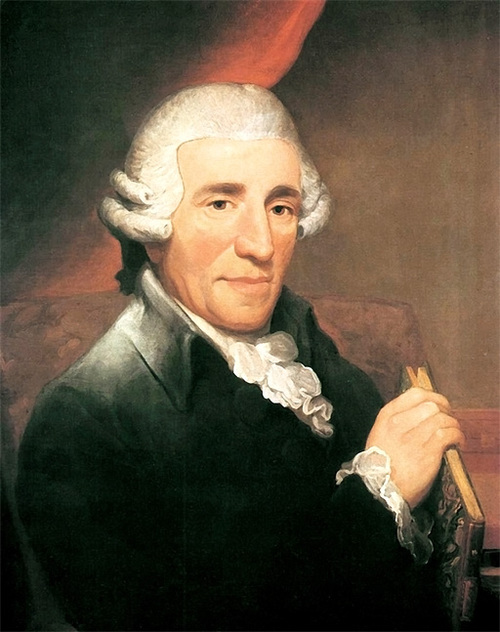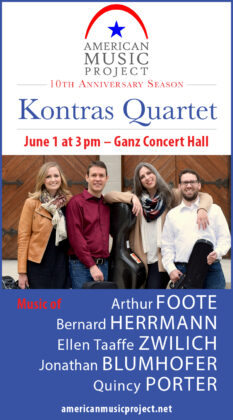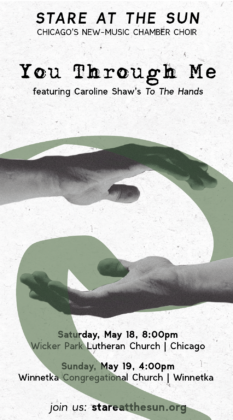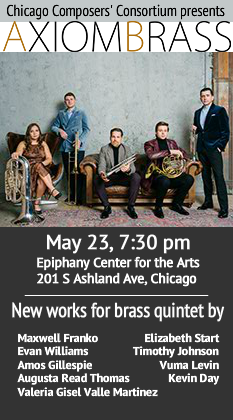Winning Haydn in plain sight with Kraemer, Music of the Baroque

The weather is lousy. The plumbing needs emergency repairs. The women in your life are making you crazy. And your internet speed is a fraction of what RCN promised you.
On days like this, thank God for Haydn. The music of the least played of all the major composers is a kind of aural Cymbalta, dispelling the miseries de la humaine with an optimism, ingenuity and joyous energy that proves great music can be smart and brilliant without being banal or simplistic.
Handel’s Water Music may have been the get-’em-in-the-door lure for Music of the Baroque’s program Friday night at the Harris Theater. But for those who love Haydn, the chance to once again hear two of the Austrian composer’s symphonies under the inimitable direction of Nicholas Kraemer was all the incentive needed.
“Dying is easy, comedy is hard,” said actor Edmund Gwenn, and the same applies to music. One can hear any number of successful performances of dramatic Beethoven or tragic Mahler. But how many conductors can make you smile and almost laugh out loud at a particularly witty phrase or unexpected harmonic turn?
MOB’s principal guest conductor—in fact, the ensemble’s only guest conductor—is masterful in this repertoire, as shown once again in Friday’s pairing of early and late Haydn symphonies.
The concise Symphony No. 64, subtitled “Tempora mutantur” (times change) from 1773, is characteristic in its vigor, high spirits and dynamic drive, albeit a bit darker-hued than most works coming after the composer’s sturm und drang period. The most striking element is the remarkable slow movement—a Largo in which irregular pauses and unresolved suspensions plumb an unusually dark landscape, though under Kraemer’s genial direction, the music emerged more strange and unsettled than deeply tragic. The orchestra played with enviable verve and finesse, though the two horns—who, in fairness, had much challenging music to play throughout this program—were less than airtight in the Presto finale.
No. 97 is one of the more rarely heard of Haydn’s “London” symphonies, and something of a challenge to pull off, though once again, Kraemer made child’s play out of the musical hurdles. Scored for grander forces with timpani and trumpets as well as horns, oboes and flutes, Kraemer made the larger scale apparent in the majestic Adagio opening, while maintaining a light, vivacious style in the ensuing Vivace.
The English conductor has a real knack for the Haydn musical punchline as with the opening string phrase of the Adagio, which is quirkily completed by the winds. Here too Kraemer charted the movement’s ensuing tension and latter outbursts without sacrificing period elegance.
The Presto assai finale to No. 97 is not outwardly among Haydn’s wittiest inspirations, though Kraemer mined the opportunities of the insistent main theme in winning fashion with the hairpin dynamic turns and harmonic surprises put across with superb panache by the MOB ensemble.
Kraemer opted to give the audience the complete Water Music, and the three suites framed the Haydn symphonies. Kraemer is a skilled hand in this repertoire as well, and brought well-judged tempos and a lightly pointed approach, the music vital and energetic without ever pushing it out of good period manners.
The celebrated Allegro from the First Suite and the antiphonal trumpet and horn exchanges in the Alla Hornpipe of the Second went with nimble and stylish articulation, Barbara Butler throwing in a few trumpet grace notes of her own. Fleeting ensemble lapses surfaced in this generous Handel meal, but Kraemer and company largely served the music well with trim, graceful playing, impeccably balanced by the conductor.
Charming as the Water Music is, even diehard Handel fans can feel a bit overhydrated by the time the final Menuet and Rigaudon come into view. Yet the Third Suite proved a highlight of the evening.
Scored for more intimate forces than the royal Thames road trip of the first two suites, Handel here replaces the brass with higher winds to ingenious effect. Kraemer took over harpsichord duties from the excellent Robert McConnell to lead a delightful rendering of this music with Mary Stolper’s flute and, especially, Mirja Lorenz’s recorder, adding piquant solos to the mix.
The program will be repeated 7:30 p.m. Sunday at the North Shore Center for the Performing Arts in Skokie. baroque.org; 312-551-1414.
Posted in Performances





Posted Feb 24, 2013 at 7:23 am by Laurie
Fair enough, but also consider that the two horns are playing Meistersinger in between these concerts! If one needs a note-perfect rendition, buy a recording…they had plenty of takes to splice it together.